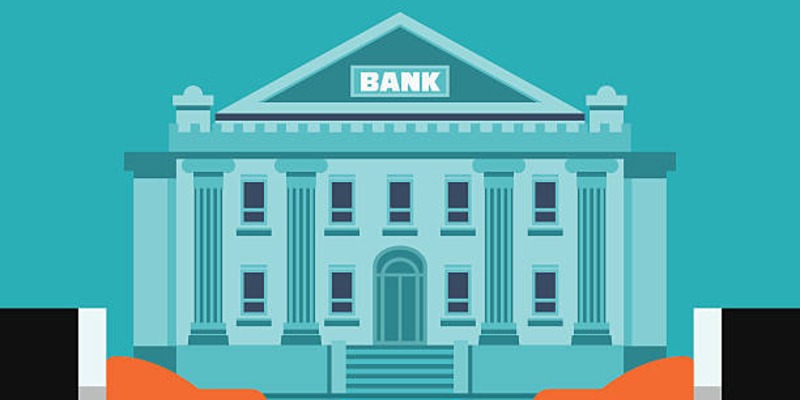House Flipping Mistakes That Could Make You a Failure
Feb 28, 2024 By Susan Kelly
It seems so simple! Purchase a house, make minor repairs, and then resell it for a significant profit. A half-dozen reality television series showcase attractive, well-dressed investors who make the process appear easy and rewarding.
In addition, a large number of houses are being resold. According to ATTOM Data Solutions' 2019 U.S. Home Flipping Report, flipped properties accounted for 6.2% of all home sales in the U.S. in 2019. This was the highest percentage in eight years. 1 Figure recovered by the second quarter of 2021, despite a modest decrease in 2020.
How a House Flipping Business Operates
An investment technique known as flipping involves purchasing a property to sell it on the market for a profit. One or more homes are bought and sold by investors specializing in flipping properties. By frequently flipping properties, many investors hope to produce a consistent revenue stream. Converting a building or house, therefore, is how you accomplish it. The idea is to get a good deal and resell it for a profit.
Where Do You Begin?

Minimize your financial risk and maximize possible returns. A good rule of thumb is to avoid paying more than the home is worth and estimate the cost of any repairs or improvements required before making a purchase. Once you have that knowledge, you can figure out the best amount to pay. Investing in a property with an after-repair value (ARV) of less than 70 percent is referred to as the 70 percent rule. The ARV is the value of a house once it has been fixed. "
House Flipping Mistakes That Can Make It a Failure

Watching a TV show about flipping properties could make you want to give it a go. In reality, it's not as simple as it appears on television. Flipping houses, which involves purchasing a fixer-upper and making modifications before reselling it for a profit, may be disappointing if you're not cautious. Beware of these five blunders before you dive into the world of property flipping.
Improper House Investment
Choosing the perfect property to flip is critical. As you experience flipping houses, you'll have a better sense of what properties are worth your time and money and which aren't. It's possible to start from scratch with specific properties because of the extensive repairs they need, such as new foundations or roofs. If you hire a contractor to check the house before you buy it, you may avoid this error. The location of the house is also an important consideration.
Overpaying For A Home
If you overpay for the house, you intend to remodel, and you may not be able to make a profit. Foreclosure auctions, for example, are a great place to locate low-priced properties for those who want to buy and flip houses, and they're not afraid to surf around for the most incredible deals before making a purchase.
The 70 percent rule is one that some flippers follow before making a purchase. This might give you a 30 percent profit margin, making you less likely to lose money after factoring in lending fees, closing charges, real estate agent fees, and other expenses.
Miscalculating Repair Costs
When it comes to flipping properties, individuals often underestimate the expense of home upgrades. Buying a property that requires a lot of repairs and then running out of money is one of the worst possible scenarios. At this point, you may be unable to sell or rent out your home until you can afford to make the necessary repairs.
Budgeting your home remodeling expenses is an excellent way to prevent this issue. It's a good idea to consult a competent contractor before coming up with a budget if you're new to home renovations and don't know what repairs typically cost. If you've watched any house-flipping TV shows, you know that unexpected costs are typical. So, be sure you budget for those as well.
Timeline Miscalculation
Putting too much pressure on yourself to complete the switch will almost always result in disappointment. Flipping properties may be stressful, so if you want to minimize your stress level, be realistic about the timescale.
Ultimately, it may take longer than you expect even to discover a house to invest in. Repairs and property inspections follow, and the place is then sold. Because it's impossible to keep tabs on every detail of each of these projects, provide some leeway in the schedule.
Don't forget that if you're doing all the work yourself while still working full-time, you may only have weekends to work on the property. Even if you hire a crew to handle the job, you'll want to check in on the progress and provide your approval before they go.

How to Learn Financial Management

Navigating the World of Alternative Investments: A Comprehensive Guide

Exactly What is a Car Lease? What to Do And What Not to Do

Doji Candlesticks: Unlocking Market Insights Through Indecision

Demystifying the FDIC: An In-Depth Look at Its Definition and Limits

A Comprehensive Overview of Setting Up a Special Needs Trust

A Beginner's Guide to the 6 Most Popular Currencies for Trading

House Flipping Mistakes That Could Make You a Failure

10 Strategies for Avoiding Taxes When Receiving a Lump Sum Pension Payment

